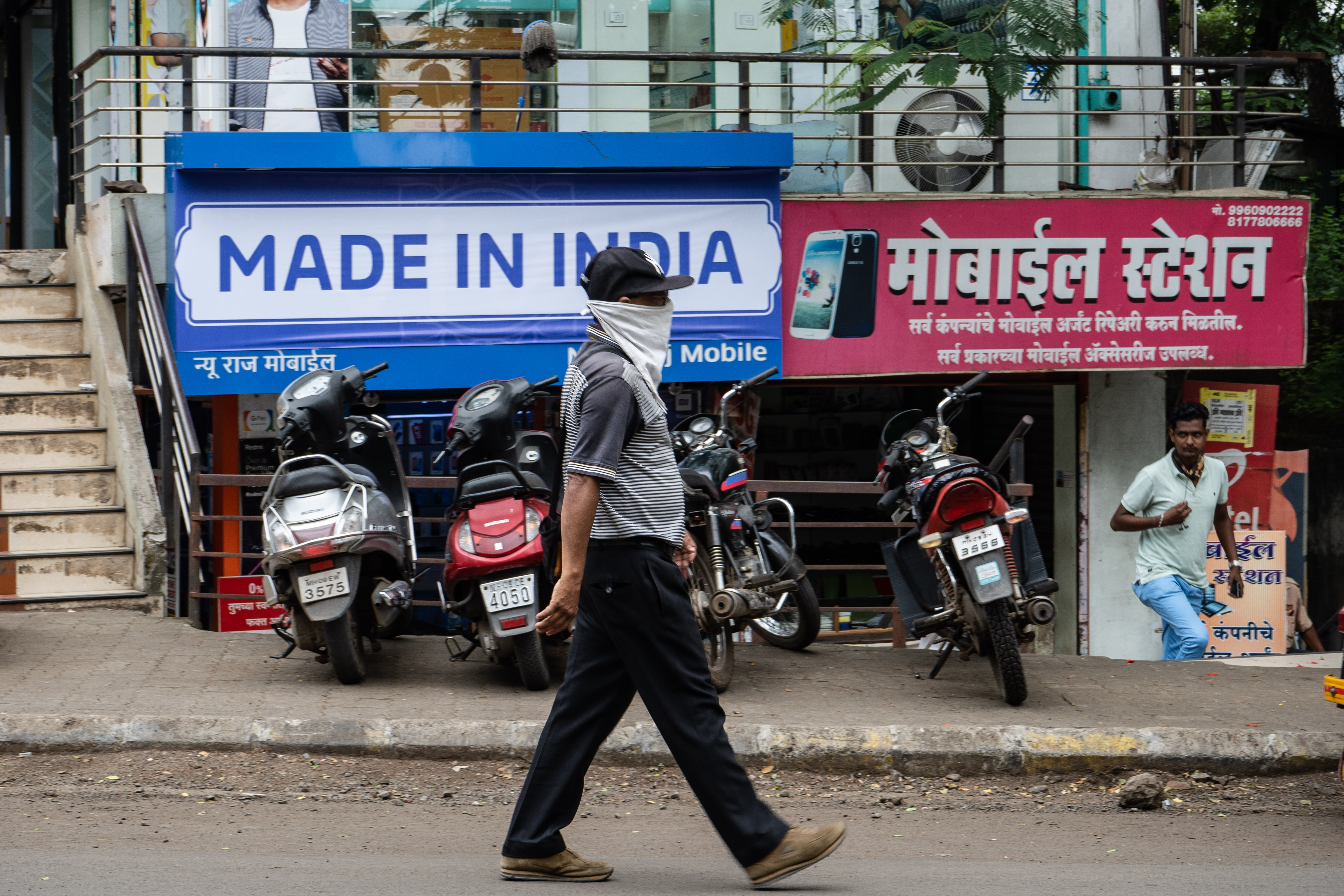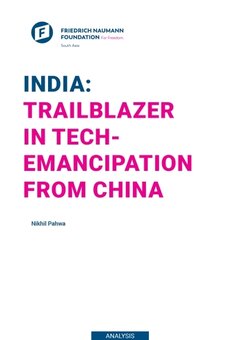Digital economy
Unleashing Europe's Digital Awakening: the case of India's

Indien hat hunderte chinesische Apps wie TikTok und UC Browser verboten.
© picture alliance / ZUMAPRESS.com | Abhijeet GurjarIn recent years, India has taken bold steps to break its dependence on Chinese technologies and investments. The border conflicts with China in 2020 and long-standing, deep-rooted security concerns have fueled these drastic measures. India has banned hundreds of Chinese apps like TikTok and UC Browser, reduced imports from China, restricted investments from Chinese companies in India, and mandated that telecommunications infrastructure must come from "trusted sources." These steps have been accompanied by a determined promotion of domestic companies and innovations, support for local production, and the formation of global alliances to curb China's technological dominance. Europe can learn from this determined decoupling and not only reduce its dependence on China, but also seize new economic opportunities.
Chinese chips from Huawei and ZTE, deeply embedded in critical infrastructures like the 5G network, have recently been classified as serious security risks by the EU Commission. The Commission is calling for a ban on these devices in European telecommunications networks due to longstanding security concerns: Huawei, like all Chinese companies, is subject to the national security law, which requires it to cooperate with authorities and intelligence agencies. The close integration of companies, the party, and the military further highlights concerns about influence campaigns and espionage on behalf of the Chinese state.
Germany continues to rely on Chinese components in 5G networks despite security concerns
Despite these alarming findings, the cheaper technologies from China continued to be used in Germany. According to a study by Strand Consult, 59% of all German 5G networks still used components from Huawei last year. The German government recently reached an agreement with telecom providers. By the end of 2026, components must be removed from the core network, where they already play a very limited role. By 2029, in a second step, Chinese components must also be replaced in radio access parts (RAN). A complete ban on Chinese components is not planned.
From a European perspective, the EU Commission has recently launched a procedure against TikTok under the Digital Services Act. This procedure criticizes the lack of transparency of the platform, and particularly TikTok Lite's attraction to minors, where users can earn points by completing small tasks that can be exchanged for valuable goods. A procedure has also been initiated against the Chinese online shop AliExpress, as it is required to prevent the sale and promotion of illegal goods as a "very large online platform." More European digital and technology companies are needed. A major problem remains the lack of venture capital and investment, which drives many new tech start-ups to bring foreign investors on board after their founding phase. Fueled by a real industrial policy and a harmonized financial market, technological sovereignty can serve as an engine for the economy of the future.
In the recently published policy paper by the Friedrich Naumann Foundation, "India: Trailblazer in Tech-Emancipation from China” author Nikhil Pahwa outlines the steps India has taken to become more independent from Chinese technology. However, it also becomes clear that India continues to face its own challenges. The trade deficit with China persists, Chinese technology is still used in Indian telecommunications networks, and Indian alternatives to Chinese apps have not been able to replace TikTok. Nevertheless, India has shown that it can skillfully use geopolitical developments to its advantage. The country pursues a clear course that maintains a balance between economic benefits and strategic interests. The anti-China measures have not significantly harmed India so far and have especially benefited American companies. The trade impacts are currently minor. It is, however, still too early to see the full extent of these measures as they are part of a long-term plan.
India's balancing act: between economic benefit and strategic independence
Ultimately, both India and Europe stand at a crossroads. India has embarked on the path of technological independence and proves that it is determined to pursue its strategic goals despite initial setbacks. Europe, particularly Germany, must decide whether it wants to continue accepting the short-term benefits of cost-effective technology from China or if it is ready to take the security-related risks seriously and take decisive steps towards technological sovereignty. To achieve this, however, we must start now to strengthen the European digital industry through building up capacities, as well as creating incentives to flourish domestically.


